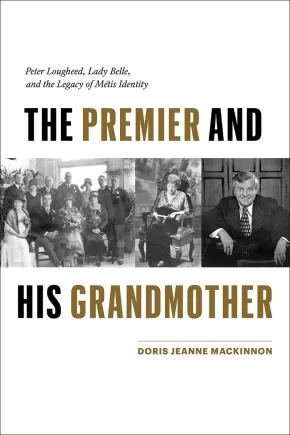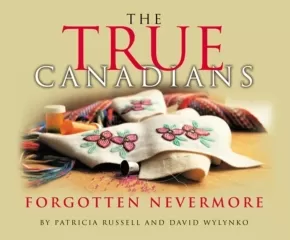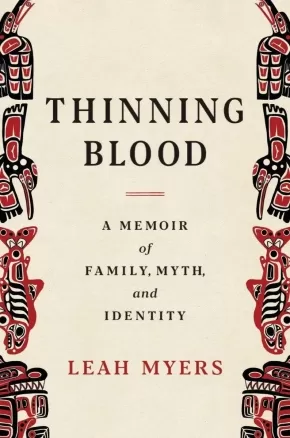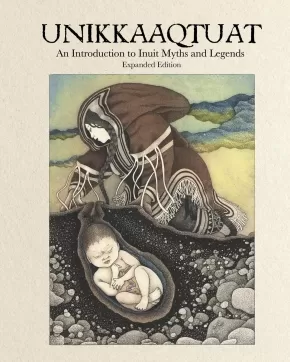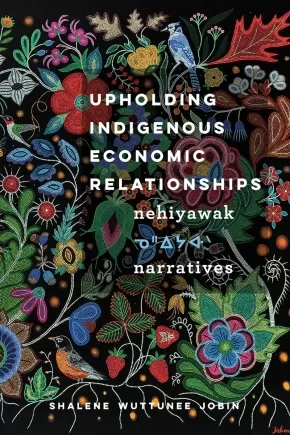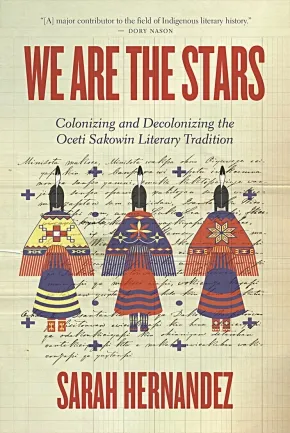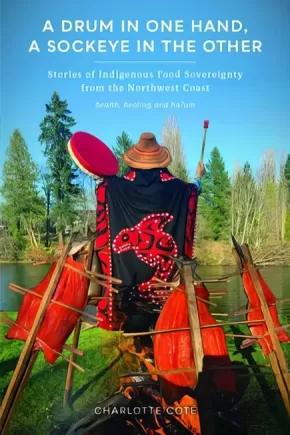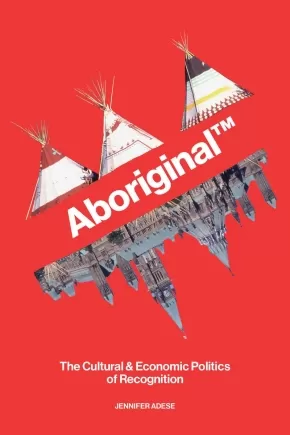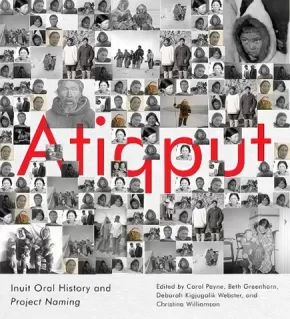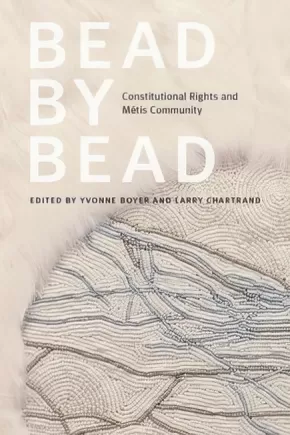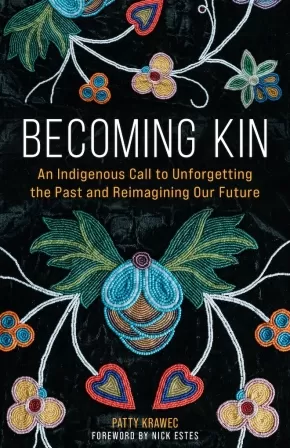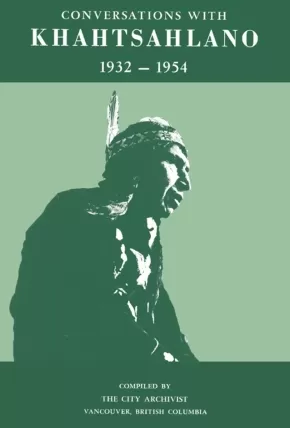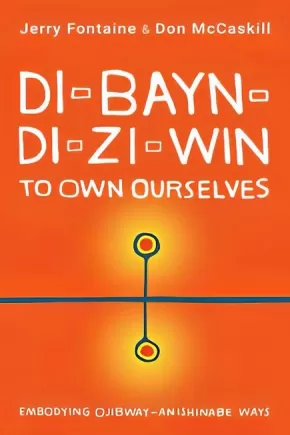
History
91
-
105
of
336 Results;
Sort By
Go To
of 23
The Premier and His Grandmother: Peter Lougheed, Lady Belle, and the Legacy of Métis Identity
$32.95
Format:
Paperback
Text Content Territories:
Indigenous Canadian; Métis;
Grade Levels: 12; University/College;
ISBN / Barcode: 9781772034592
Synopsis:
Synopsis:
An intriguing look at the connections between Alberta premier Peter Lougheed and his Métis grandmother, Isabella Clarke Hardisty Lougheed, exploring how Métis identity, political activism, and colonial institutional power shaped the lives and legacies of both.
Combining the approaches of political biography and historical narrative, The Premier and His Grandmother introduces readers to two compelling and complex public figures. Born into a prominent fur trading family, Isabella Clarke Hardisty Lougheed (1861–1936) established a distinct role for herself as an influential Métis woman in southern Alberta, at a time when racial boundaries in the province were hardening and Métis activists established a firm foundation for the Métis to be recognized as distinct Indigenous Peoples.
Isabella’s grandson Edgar Peter Lougheed (1928–2021) served as premier of Alberta at a time when some of that activism achieved both successes and losses. Drawing on Peter Lougheed’s personal papers, family interviews, and archival research, this book analyzes his political initiatives in the context of his own identity as a person of Métis ancestry. While there are several publications that refer to Peter Lougheed in the context of his role as premier, few of those publications have acknowledged his connection to an important Métis pioneer family and his connection to his Indigenous ancestors.
Additional Information
320 pages | 6.00" x 9.00" | b&w photographs | Paperback
The True Canadians: Forgotten Nevermore
$38.95
Format:
Hardcover
Text Content Territories:
Indigenous Canadian; Métis;
Grade Levels: 12; University/College;
ISBN / Barcode: 9781777044626
Synopsis:
Synopsis:
For over two centuries, the Métis have fought for recognition as an Indigenous people and as a Nation. This struggle has played out on the battlefield, in the courts, and at the negotiating table, often over issues of governance, land rights, and resources. It wasn’t until 1982, when the government patriated the Constitution, that Métis rights were officially recognized by Canada. The True Canadians chronicles Métis challenges and achievements over those 40 years and well before. Focused on Alberta, the book traces the growth of the Métis Nation of Alberta, which in 2022 ratified its own Constitution, the same year as the 40th anniversary of Canada’s Constitution Act. The title refers to the fact the Métis are the people born of this land.
Additional Information
11.00" x 9.00" | Hardcover
Thinning Blood: A Memoir of Family, Myth, and Identity (HC) (1 in Stock)
$34.95
Format:
Hardcover
Text Content Territories:
Indigenous American; Native American; Salish; Coast Salish; Klallam (Clallam); Jamestown S'Klallam;
Reading Level: N/A
ISBN / Barcode: 9781324036708
Synopsis:
Synopsis:
Named a Most Anticipated Book of 2023 by The Millions
A vibrant new voice blends Native folklore and the search for identity in a fierce debut work of personal history.
Leah Myers may be the last member of the Jamestown S’Klallam Tribe in her family line, due to her tribe’s strict blood quantum laws. In this unflinching and intimate memoir, Myers excavates the stories of four generations of women in order to leave a record of her family. Beginning with her great-grandmother, the last full-blooded Native member in their lineage, she connects each woman with her totem to construct her family’s totem pole: protective Bear, defiant Salmon, compassionate Hummingbird, and perched on top, Raven.
As she pieces together their stories, Myers weaves in tribal folktales, the history of the Native genocide, and Native mythology. Throughout, she tells the larger story of how, as she puts it, her “culture is being bleached out,” offering sharp vignettes of her own life between White and Native worlds: her naive childhood love for Pocahontas, her struggles with the Klallam language, the violence she faced at the hands of a close White friend as a teenager.
Crisp and powerful, Thinning Blood is at once a bold reclamation of one woman’s identity and a searingly honest meditation on heritage, family, and what it means to belong.
Reviews"
[A] searing debut…Myers's fierce testimony is both record and reclamation of [family] history, told beautifully and simply. Any family would be lucky to have their story handled with this much care."—Publishers Weekly
"A quietly elegiac memoir that could serve as an enduring historical document."—Kirkus Reviews
"This powerful, memorable debut runs hot with Leah Myers’s fierce intelligence. She admirably interrogates her relationship to identity, her place in her family’s history, and the future of her people—and demands a long-delayed justice."—Matt Bell, author of Appleseed
"Thinning Blood is a powerful testament to the power of storytelling. It is both personal and historical, factual and deeply imaginative. Leah Myers is an honest and passionate witness to the culture and people that produced her. Her essays pay tribute to the complexity of memory, and the tenacity of experience." —Emily Bernard, author of Black Is the Body
"In this powerful debut, Leah Myers reveals with unvarnished honesty something that so often remains unspoken: what it feels like to teeter on the edge of identity, to face down the specter of erasure and a dwindling sense of self. By reconstructing family history and myth, she uncovers old foundations and builds a new home atop them, throwing its doors open, miraculously, to all of us."—Francisco Cantú, author of The Line Becomes a River
Additional Information
176 pages | 5.71" x 8.54" | Hardcover
Unikkaaqtuat: An Introduction to Inuit Myths and Legends - Expanded Edition
$36.95
Artists:
Format:
Hardcover
Text Content Territories:
Indigenous Canadian; Inuit;
Grade Levels: 12; University/College;
ISBN / Barcode: 9781772274882
Synopsis:
Synopsis:
Unikkaaqtuat is the Inuktitut word meaning "to tell stories."
This definitive collection of Inuit legends is thoughtfully introduced and carefully annotated to provide the historical and cultural context in which to understand this rich oral tradition. Fascinating and educational, this little-known part of Canada's heritage will captivate readers of all ages. As a work of historical and cultural preservation, this textbook will be invaluable to those studying Inuit.
Additional Information
320 pages | 8.00" x 10.00" | 100 b&w line drawings | Hardcover | 2nd Edition
Upholding Indigenous Economic Relationships: Nehiyawak Narratives
$34.95
Format:
Paperback
Text Content Territories:
Indigenous Canadian; First Nations; Cree (Nehiyawak); Métis;
Reading Level: N/A
ISBN / Barcode: 9780774865203
Synopsis:
Synopsis:
Upholding Indigenous Economic Relationships explains settler colonialism through the lens of economic exploitation, using Indigenous methodologies and critical approaches. What is the relationship between economic progress in the land now called Canada and the exploitation of Indigenous peoples? And what gifts embedded within Indigenous world views speak to miyo‐pimâtisiwin ᒥᔪ ᐱᒫᑎᓯᐃᐧᐣ (the good life), and specifically to good economic relations?
Shalene Wuttunee Jobin draws on the knowledge systems of the nehiyawak ᓀᐦᐃᔭᐊᐧᐠ (Cree people) – whose distinctive principles and practices shape their economic behaviour – to make two central arguments. The first is that economic exploitation was the initial and most enduring relationship between newcomers and Indigenous peoples. The second is that Indigenous economic relationships are constitutive: connections to the land, water, and other human and nonhuman beings form who we are as individuals and as peoples. This groundbreaking study employs Cree narratives that draw from the past and move into the present to reveal previously overlooked Indigenous economic theories and relationships, and provides contemporary examples of nehiyawak renewing these relationships in resurgent ways. In the process, Upholding Indigenous Economic Relationships offers tools that enable us to reimagine how we can aspire to the good life with all our relations.
This study will interest not only scholars and students of Indigenous studies, particularly Cree studies, but also Indigenous community members involved in community and economic development, planning, and governance.
Reviews
"Beautifully written, Upholding Indigenous Economic Relationships is crucially important as a comprehensive exploration of Cree economic values told through story and oral history." -
"Shalene Jobin’s refreshing perspective on a prairie First Nations community is a desperately needed contribution to Indigenous studies as well as history, anthropology, and Canadian studies." -
Educator Information
Table of Contents
Preface
1 Grounding Methods
2 Grounding Economic Relationships
3 nehiyawak Peoplehood and Relationality
4 Canada’s Genesis Story
5 ᐃᐧᐦᑎᑯᐤ Warnings of Insatiable Greed
6 Indigenous Women’s Lands and Bodies
7 Theorizing Cree Economic and Governing Relationships
8 Colonial Dissonance
9 Principles Guiding Cree Economic Relationships
10 Renewed Relationships through Resurgent Practices
11 Upholding Relations
Postscript
Glossary of Cree Terms
Notes; References; Index
Additional Information
272 pages | 6 x 9" | Paperback
We Are the Stars: Colonizing and Decolonizing the Oceti Sakowin Literary Tradition
$39.95
Format:
Paperback
Text Content Territories:
Indigenous American; Native American; Sioux; Lakota; Sicangu Oyate (Rosebud Sioux Tribe); Dakota;
Grade Levels: University/College;
ISBN / Barcode: 9780889779181
Synopsis:
Synopsis:
An emerging Lakota scholar’s critical interrogation of settler-colonial nations that re-centers Oceti Sakowin (Dakota) women as the tribe’s traditional culture keepers and bearers.
We Are the Stars is a literary recovery project that seeks to reconstruct a genealogy of Oceti Sakowin (Dakota) literature, and study in-depth the linkages between settler colonialism, literature, nationalism, and gender via analysis of tribal and settler colonial narratives about women and land.
Sarah Hernandez begins by exploring how settler colonizers used the printing press and boarding schools to displace Oceti Sakowin women as traditional culture keepers and bearers, with the goal of assimilating completely the Dakota, Nakota, and Lakota nations.
She then shifts her focus to decolonization, exploring how contemporary Oceti Sakowin writers and scholars have started to reclaim Dakota, Nakota, and Lakota literatures to decolonize and heal their families, communities, and nations.
Additional Information
256 pages | 6.00" x 9.00" | Paperback
A Drum in One Hand, a Sockeye in the Other: Stories of Indigenous Food Sovereignty from the Northwest Coast
$41.00
Format:
Paperback
Text Content Territories:
Indigenous Canadian; First Nations; Nuu-chah-nulth (Nootka); Tseshaht First Nation;
Grade Levels: 12; University/College;
ISBN / Barcode: 9780295749525
Synopsis:
Synopsis:
In the dense rainforest of the west coast of Vancouver Island, the Somass River (c̓uumaʕas) brings sockeye salmon (miʕaat) into the Nuu-chah-nulth community of Tseshaht. C̓uumaʕas and miʕaat are central to the sacred food practices that have been a crucial part of the Indigenous community’s efforts to enact food sovereignty, decolonize their diet, and preserve their ancestral knowledge.
In A Drum in One Hand, a Sockeye in the Other, Charlotte Coté shares contemporary Nuu-chah-nulth practices of traditional food revitalization in the context of broader efforts to re-Indigenize contemporary diets on the Northwest Coast. Coté offers evocative stories of her Tseshaht community’s and her own work to revitalize relationships to haʔum (traditional food) as a way to nurture health and wellness. As Indigenous peoples continue to face food insecurity due to ongoing inequality, environmental degradation, and the Westernization of traditional diets, Coté foregrounds healing and cultural sustenance via everyday enactments of food sovereignty: berry picking, salmon fishing, and building a community garden on reclaimed residential school grounds. This book is for everyone concerned about the major role food plays in physical, emotional, and spiritual wellness.
Reviews
"A powerful philosophy of food sovereignty. Coté successfully navigates myriad scholarly and nonscholarly voices, telling a compelling comprehensive story that helps us understand the practices and policies needed to make change in our food systems." — Kyle Whyte, Michigan State University
"Adeptly uses a deep storytelling method, including both lived experience and critical analysis of history and theory, to examine experiences and transformations of Indigenous foodways." — Hannah Wittman, University of British Columbia
"I am so grateful for Charlotte Cote’s A Drum in One Hand, a Sockeye in the Other, which creates a path into the living foodways and thoughtways of her people. Her warm, storytelling voice and sharing of collective knowledge embody the generous spirit of a feast, and this book itself, is a feast." — Robin Wall Kimmerer (Potawatomi), SUNY Environmental Science and Forestry
Additional Information
208 pages | 6.00" x 9.00" | 17 b&w illustrations | 2 maps | Paperback
Aboriginal™: The Cultural and Economic Politics of Recognition
$27.95
Format:
Paperback
Text Content Territories:
Indigenous Canadian;
ISBN / Barcode: 9781772840056
Synopsis:
Synopsis:
In Aboriginal™, Jennifer Adese explores the origins, meaning, and usage of the term “Aboriginal” and its displacement by the word “Indigenous.” In the Constitution Act, 1982, the term’s express purpose was to speak to specific “aboriginal rights”. Yet in the wake of the Constitution’s passage, Aboriginal, in its capitalized form, became increasingly used to describe and categorize people.
More than simple legal and political vernacular, the term Aboriginal (capitalized or not) has had real-world consequences for the people it defined. Aboriginal™ argues the term was a tool used to advance Canada’s cultural and economic assimilatory agenda throughout the 1980s until the mid-2010s. Moreover, Adese illuminates how the word engenders a kind of “Aboriginalized multicultural” brand easily reduced to and exported as a nation brand, economic brand, and place brand—at odds with the diversity and complexity of Indigenous peoples and communities.
In her multi-disciplinary research, Adese examines the discursive spaces and concrete sites where Aboriginality features prominently: the Constitution Act, 1982; the 2010 Vancouver Olympics; the “Aboriginal tourism industry”; and the Vancouver International Airport. Reflecting on the term’s abrupt exit from public discourse and the recent turn toward Indigenous, Indigeneity, and Indigenization, Aboriginal™ offers insight into Indigenous-Canada relations, reconciliation efforts, and current discussions of Indigenous identity, authenticity, and agency.
Additional Information
272 pages | 6.00" x 9.00" | Paperback
Atiqput: Inuit Oral History and Project Naming
$45.95
Editors:
Format:
Hardcover
Text Content Territories:
Indigenous Canadian; Inuit;
Reading Level: N/A
ISBN / Barcode: 9780228011057
Synopsis:
Synopsis:
A multigenerational discussion of culture, history, and naming centring on archival photographs of Inuit whose names were previously unrecorded.
"Our names - Atiqput - are very meaningful. They are our identification. They are our Spirits. We are named after what's in the sky for strength, what’s in the water ... the land, body parts. Every name is attached to every part of our body and mind. Yes, every name is alive. Every name has a meaning. Much of our names have been misspelled and many of them have lost their meanings forever. Our Project Naming has been about identifying Inuit, who became nameless over the years, just "unidentified eskimos ..." With Project Naming, we have put Inuit meanings back in the pictures, back to life." Piita Irniq
For over two decades, Inuit collaborators living across Inuit Nunangat and in the South have returned names to hundreds of previously anonymous Inuit seen in historical photographs held by Library and Archives Canada as part of Project Naming. This innovative photo-based history research initiative was established by the Inuit school Nunavut Sivuniksavut and the national archive.
Atiqput celebrates Inuit naming practices and through them honours Inuit culture, history, and storytelling. Narratives by Inuit elders, including Sally Kate Webster, Piita Irniq, Manitok Thompson, Ann Meekitjuk Hanson, and David Serkoak, form the heart of the book, as they reflect on naming traditions and the intergenerational conversations spurred by the photographic archive. Other contributions present scholarly insights and research projects that extend Project Naming’s methodology, interspersed with pictorial essays by the artist Barry Pottle and the filmmaker Asinnajaq.
Through oral testimony and photography, Atiqput rewrites the historical record created by settler societies and challenges a legacy of colonial visualization.
Reviews
“Atiqput brings together statements by Inuit artists, elders, and activists with work by project facilitators and scholars to produce a vibrant tapestry that at once mourns the losses of the past, treasures the traces that can be regained, and celebrates the continued power of Inuit cultural forms.” - Peter Kulchyski, University of Manitoba and author of Report of an Inquiry into an Injustice: Begade Shutagot’ine and the Sahtu Treaty
Additional Information
264 pages | 9.00" x 10.00" | Hardcover
Bead by Bead: Constitutional Rights and Métis Community
$32.95
Editors:
Format:
Paperback
Text Content Territories:
Indigenous Canadian; Métis;
ISBN / Barcode: 9780774865975
Synopsis:
Synopsis:
What does the phrase Métis peoples mean in constitutional terms? As lawyers and scholars dispute forms of Métis identity, and debate the nature and scope of Métis rights under the Canadian Constitution, understanding Métis experience of colonization is fundamental to achieving reconciliation.
In Bead by Bead, contributors address the historical denial – at both federal and provincial levels – of outstanding Métis concerns and Aboriginal rights claims, in particular with respect to land, resources, and governance. Tackling such themes as ongoing colonial policies, the invisibility of Métis women in court decisions, identity politics, and racist legal principles, they uncover the troubling issues that plague Métis aspirations for a just future.
This nuanced analysis of the parameters that current Indigenous legal doctrines place around Métis rights discourse moves beyond a one-size-fits-all definition of Métis or a uniform approach to Aboriginal rights. By raising critical questions about self-determination, colonization, kinship, land, and other essential aspects of Métis lived reality, these clear-eyed essays go beyond legal theorizing and create pathways to respectful, inclusive Métis-Canadian constitutional relationships.
This book is essential reading for scholars and students of Métis and Indigenous studies and Aboriginal law, as well as for lawyers, politicians, and civil servants engaged in Métis issues.
Contributors: Brodie Douglas, Karen Drake, Christopher Gall, Adam Gaudry, Sébastien Grammond, Brenda L. Gunn, Thomas Isaac, Wanda McCaslin , Darren O’Toole, Jeremy Patzer, Signa A. Daum Shanks, D’Arcy Vermette.
Reviews
“Finally, we have a source that in a single place provides material and commentary that will support informed debate and help to come to grips with the questions of Métis identity, community, and constitutional rights. . . . This book accurately addresses who we are: as a people with common values, traditions, culture, way of life, family ties, history, communities and shared territory. . . . There is no question of its value, the knowledge we gain from it and how it will augment everyone’s perspective of the issues of Métis.”—Tony Belcourt, OC, first president of the Native Council of Canada and founding president of the Métis Nation of Ontario
Educator Information
Table of Contents
Foreword / Tony Belcourt
Introduction / Yvonne Boyer, Larry Chartrand, and Wanda McCaslin
1 Métis Identity Captured by Law: Struggles over Use of the Category Métis in Canadian Law / Sébastien Grammond
2 Recognition and Reconciliation: Recent Developments in Métis Rights Law / Thomas Isaac
3 Shifting the Status Quo: The Duty to Consult and the Métis of British Columbia / Christopher Gall and Brodie Douglas
4 The Resilience of Métis Title: Rejecting Assumptions of Extinguishment / Adam Gaudry and Karen Drake
5 Where Are the Women? Analyzing the Three Métis Supreme Court of Canada Decisions / Brenda L. Gunn
6 Manitoba Metis Federation and Daniels: "Post-Legal" Reconciliation and Western Métis / Jeremy Patzer
7 Colonial Ideologies: The Denial of Métis Political Identity in Canadian Law / D’Arcy Vermette
8 Métis Aboriginal Rights: Four Legal Doctrines / Darren O’Toole
9 Suzerainty, Sovereignty, Jurisdiction: The Future of Métis Ways / Signa A. Daum Shanks
Afterword / Yvonne Boyer and Larry Chartrand
Index
Additional Information
236 pages | 6.00" x 9.00" | Paperback
Becoming Kin: An Indigenous Call to Unforgetting the Past and Reimagining Our Future (HC) (4 in Stock)
$36.49
Format:
Hardcover
Text Content Territories:
Indigenous Canadian; First Nations; Anishinaabeg; Ojibway; Lac Seul;
Reading Level: N/A
ISBN / Barcode: 9781506478258
Synopsis:
Synopsis:
We find our way forward by going back.
The invented history of the Western world is crumbling fast, Anishinaabe writer Patty Krawec says, but we can still honor the bonds between us. Settlers dominated and divided, but Indigenous peoples won't just send them all "home."
Weaving her own story with the story of her ancestors and with the broader themes of creation, replacement, and disappearance, Krawec helps readers see settler colonialism through the eyes of an Indigenous writer. Settler colonialism tried to force us into one particular way of living, but the old ways of kinship can help us imagine a different future. Krawec asks, What would it look like to remember that we are all related? How might we become better relatives to the land, to one another, and to Indigenous movements for solidarity? Braiding together historical, scientific, and cultural analysis, Indigenous ways of knowing, and the vivid threads of communal memory, Krawec crafts a stunning, forceful call to "unforget" our history.
This remarkable sojourn through Native and settler history, myth, identity, and spirituality helps us retrace our steps and pick up what was lost along the way: chances to honor rather than violate treaties, to see the land as a relative rather than a resource, and to unravel the history we have been taught.
Additional Information
224 pages | 5.81" x 8.53" | Hardcover
Braided Learning: Illuminating Indigenous Presence through Art and Story
$29.95
Format:
Paperback
Text Content Territories:
Indigenous Canadian; First Nations; Inuit; Métis;
ISBN / Barcode: 9780774880794
Synopsis:
Synopsis:
The Truth and Reconciliation Commission and Indigenous activism have made many non-Indigenous Canadians uncomfortably aware of how little they know about First Nations, Métis, and Inuit peoples. In Braided Learning, Susan Dion shares her approach to engaging with Indigenous histories and perspectives. Using the power of stories and artwork, Dion offers respectful ways to learn from and teach about challenging topics including settler-colonialism, treaties, the Indian Act, residential schools, and the Sixties Scoop. Informed by Indigenous pedagogy, Braided Learning draws on Indigenous knowledge to make sense of a difficult past, decode unjust conditions in the present, and work toward a more equitable future.
This book is a must-read for teachers and education students. It should also be read by students and practitioners in social work, child and youth counselling, policing, and nursing, or anyone seeking a foundational understanding of the histories of Indigenous peoples and of settler colonialism in Canada.
Reviews
“This book should be in every educator’s library. It serves as a model for educators to learn and teach about the history of Indigenous peoples and settler colonialism without fear or reservation. It is exactly what has been asked for over and over again.”— Tracey Laverty, First Nations, Inuit and Métis Education, Saskatoon Public Schools
"Braided Learning is a safe learning space for people at the start of their learning journey about Indigenous education and history. Each reader will take away the parts of the stories that are important to them, just like listeners do when we hear stories in the lodge from our elders. Nobody tells you what to do – you figure it out yourself with some subtle guidance." — Deb St. Amant, elder-in-residence, Faculty of Education, Queen’s University
"Understanding how educators can participate in reconciliation means understanding what stands in the way. Susan Dion understands both. Highly readable, engaging, and passionate, this book moves teachers from apprehension to action. Educators of all levels, read this book and take heed of Dion’s question: “So what are you going to do now?” — Amanda Gebhard, co-editor of White Benevolence: Racism and Colonial Violence in the Helping Professions
Educator Information
Table of Contents
Introduction: Indigenous Presence
1 Requisites for Reconciliation
2 Seeing Yourself in Relationship with Settler Colonialism
3 The Historical Timeline: Refusing Absence, Knowing Presence, and Being Indigenous
4 Learning from Contemporary Indigenous Artists
5 The Braiding Histories Stories / Co-written with Michael R. Dion
Conclusion: Wuleelham – Make Good Tracks
Glossary and Additional Resources: Making Connections, Extending Learning
Notes; Bibliography
Additional Information
288 pages | 6.00" x 9.00" | Paperback
Conversations with Khahtsahlano, 1932–1954
$45.00
Format:
Paperback
Text Content Territories:
Indigenous Canadian; First Nations; Salish; Coast Salish; Squamish;
Reading Level: N/A
ISBN / Barcode: 9781772014907
Synopsis:
Synopsis:
Conversations with Khahtsahlano, 1932–1954 contains twenty-two years of conversations between Sḵwx̱uwú7mesh Chief X̱ats’alanexw, a.k.a. Chief August Jack Khahtsahlano, and Major J.S. Matthews. Originally published in 1955 by the Vancouver City Archives, Conversations with Khahtsahlano received a limited publication and is reproduced here in facsimile.
Chief X̱ats’alanexw’s reminiscences travel as far back as 1881. He recounts neighbourhood tales, the Traditional Stories he grew up with, local genealogies, cultural histories, and detailed accounts of practices for everything from fishing sturgeon to building houses. Knowledgeable and forthcoming, Chief X̱ats’alanexw’s recollections weave a meticulous tapestry.
After centuries of violent erasure of Indigenous world views, here is a rare first-hand account detailing traditional life of the Coast Salish peoples, an insightful record rich with art, diagrams, maps, letters, and photographs. Chief X̱ats’alanexw’s observations give shape to the social and physical changes of the region, and offer an illuminating glimpse into so-called Vancouver in its infancy. Conversations with Khahtsahlano is an essential text that brings history indelibly to life.
This facsimile reprint is a co-production by Talonbooks and Massy Books.
Reviews
“Chief X̱ats’alanexw provides incredible insight into the history, culture, and lifestyle of our peoples. His descriptive accounts help readers to visualize our historical villages around k’emk’emeláy̓, learn how we’ve thrived off our lands for millennia and understand how we were forcibly removed from them during colonization.”—Syex̱wáliya Ann Whonnock, Sḵwx̱wú7mesh Úxwumixw Councillor and grandniece of Chief X̱ats’alanexw
Additional Information
444 pages | 5.50" x 8.50" | Paperback
Di-bayn-di-zi-win (To Own Ourselves): Embodying Ojibway-Anishinabe Ways
$24.99
Format:
Paperback
Text Content Territories:
Indigenous Canadian; First Nations; Anishinaabeg; Ojibway;
Grade Levels: 12; University/College;
ISBN / Barcode: 9781459748996
Synopsis:
Synopsis:
A collaboration exploring the importance of the Ojibway-Anishinabe worldview, use of ceremony, and language in living a good life, attaining true reconciliation, and resisting the notions of indigenization and colonialization inherent in Western institutions.
Indigenization within the academy and the idea of truth and reconciliation within Canada have been seen as the remedy to correct the relationship between Indigenous Peoples and Canadian society. While honourable, these actions are difficult to achieve given the Western nature of institutions in Canada and the collective memory of its citizens, and the burden of proof has always been the responsibility of Anishinabeg.
Authors Makwa Ogimaa (Jerry Fontaine) and Ka-pi-ta-aht (Don McCaskill) tell their di-bah-ji-mo-wi-nan (Stories of personal experience) to provide insight into the cultural, political, social, and academic events of the past fifty years of Ojibway-Anishinabe resistance in Canada. They suggest that Ojibway-Anishinabe i-zhi-chi-gay-win zhigo kayn-dah-so-win (Ways of doing and knowing) can provide an alternative way of living and thriving in the world. This distinctive worldview — as well as Ojibway-Anishinabe values, language, and ceremonial practices — can provide an alternative to Western political and academic institutions and peel away the layers of colonialism, violence, and injustice, speaking truth and leading to true reconciliation.
Reviews
"Fontaine and McCaskill write in a way our own Indigenous People can understand and feel; their passion is tangible." — Graham Hingangaroa Smith, Distinguished Professor, Massey University - NZ
"There are multiple ways to inhabit our deepest principles. There are also many ways to honor land and our elders by embodying the teachings of both. Here is life found in kindness, loving, and truth. How do we access healing and how do we share this healing with others? Reading this book is one way. Tears of gratitude are for you both, Jerry Fontaine and Don McCaskill. Mahalo nui no ko ?ike nahenahe. Thank you for this mutual emergence shaped as much by friendship as it is by ?ike kupuna - elder knowledge. What is within these pages are ceremonial gifts offered to all who will take the time to connect with what is inevitable about our collective evolution." — Manulani Aluli Meyer, University of Hawai‘i
Additional Information
328 pages | 6.00" x 9.00" | Paperback
First Nations 101: Tons of Stuff You Need to Know - 2nd Edition
$23.00
Format:
Paperback
Text Content Territories:
Indigenous Canadian; First Nations;
ISBN / Barcode: 978-0-9869640-1-5
Synopsis:
Synopsis:
Updated and expanded 2nd edition of the national best seller!
First Nations 101 provides a broad overview of the day-to-day lives of Indigenous people, traditional Indigenous communities, colonial interventions used in an attempt to assimilate Indigenous people into mainstream society, the impacts those interventions had on Indigenous families and communities, and how Indigenous people are working towards holistic health and wellness today.
This 2nd edition has over 75 chapters, including new ones on rematriation, water for life, governance ‘options’, Indigenous feminisms, decolonization, (mis)appropriation, Indigenous Knowledge, and how to become a great ally.
Educator Information
Author Lynda Gray’s accessible writing style makes First Nations 101 the perfect primer for all to read. She notes that although governments may encourage and fund reconciliation activities, true reconciliation can only happen through the ongoing commitment and consistent actions of individuals, groups, organizations, governments, and businesses.
$1 from each book sold will be donated to the Ts’msyen Revolution Fund which Lynda Gray and her children, Dr. Robin Gray and artist Phil Gray, started in 2022. The Fund will help support Ts’msyen language and culture revitalization in laxyuubm Ts’msyen (Ts’msyen territory).
Lynda Gray is member of the Ts’msyen Nation from Lax Kw’alaams on the Northwest Coast of B.C. The book’s cover art was created by her son Phil Gray and features a 'neełx (killerwhale) to represent the author and her children’s clan (Gisbutwada).
The 2nd edition has over 75 chapters, with 16 new ones including rematriation, what is reconciliation, traditional economies, water for life, Indigenous feminisms, (mis)appropriation, economic development, Indigenous Knowledge, how to become a great ally, and more.
Additional Information
336 Pages | Updated and expanded 2nd edition
Sort By
Go To
of 23

